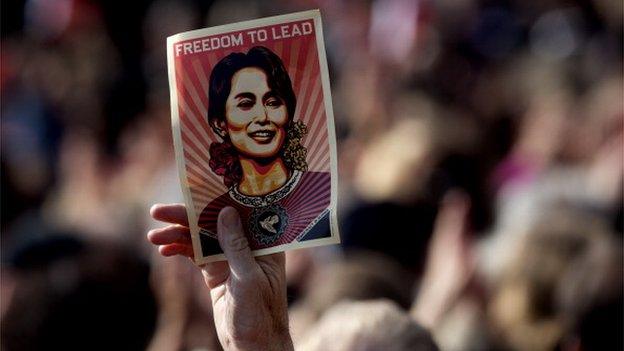Retracing the life of Burma's Aung San Suu Kyi in UK
- Published
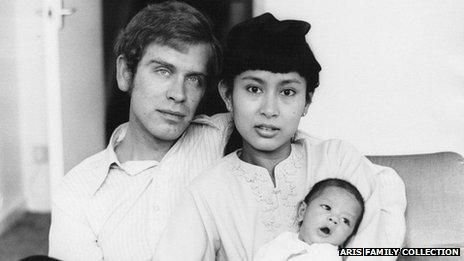
Aung San Suu Kyi has returned to the UK 24 years after leaving for Burma, where she joined the pro-democracy movement. BBC world affairs correspondent Mike Wooldridge looks at her years in Britain, where she studied and married.
Aung San Suu Kyi says of her first visit to Britain in nearly a quarter of a century that she wants to "see old friends and rediscover old places" - and she hopes it will not be tinged with sadness.
There will, though, undoubtedly be moments of pain for the Burmese pro-democracy leader and Nobel peace laureate as she retraces the life she shared in Britain with her late husband, Michael Aris, whom she married in 1972 and who died of cancer in 1999 in her absence.
He had been denied a visa to visit Burma for several years and, although the military regime told Ms Suu Kyi that as he was dying in Oxford she could travel to be with him, she believed that she would not be allowed back in to Burma and this would have meant permanent exile for her.
Michael Aris understood the sense of duty she felt to serve her homeland and its people. She had written to him as they were starting their life together: "Should my people need me, you would help me to do my duty by them."
'Dutiful daughter'
In the event, it meant separation from him and from their children, Alexander and Kim - with occasional initial visits by them to Burma - after she went to Rangoon from Britain in 1988.
She was summoned to look after her critically ill mother and then became swept up in the pro-democracy movement that had taken to the streets - seeing it as duty calling her when key figures involved in the movement appealed to her to be its head.
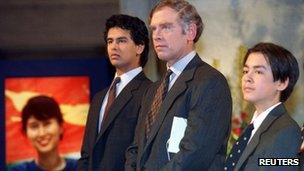
Aung San Suu Kyi's return to Burma saw her separated from her husband and sons
Ms Suu Kyi and her mother had left Burma together for India in 1960, when her mother was appointed as the Burmese ambassador in Delhi. The 14-year-old completed her schooling in Delhi and then moved to Britain to read philosophy, politics and economics at St Hugh's College, Oxford.
Ann Pasternak-Slater was at the college with her and recalled their first meeting when I interviewed her for a BBC radio documentary on Ms Suu Kyi two years ago.
She said: "I saw this beautiful person on the other side of the room and I thought, 'She's lovely.' She was striking because she was dressed in a lunghi and a tight sleeveless blouse, her hair was in a ponytail and she had a thick Shetland pony fringe, a beautiful face and bright eyes. She was immaculate, always a fresh carnation in her hair."
The late Lady Patricia Gore-Booth - whose husband had been British ambassador to Burma - became an "unofficial guardian" to Ms Suu Kyi while she was studying at that time.
She said: "In the holidays she would come and occupy the flat at the top of the house. As a member of our family she was a very dutiful daughter.
"She would always clear the dishes. She was trained in domestic sciences by her mother and had all the graces of her traditional Burmese manners of bowing slightly before elders."
Ms Suu Kyi met Michael Aris - a scholar of Tibetan culture - through mutual friends and a relationship began to flourish after she had spent some time in New York.
Charismatic and resolute
Their wedding took place at the Gore-Booth home - also described by Lady Gore-Booth for the documentary.
"Her aunt came to help who knew the traditions of a Buddhist ceremony and another friend made her wedding outfit - a compromise of Burmese dress and European accoutrements. The ceremony took place in our drawing room.
"There was a monk chanting and the full ceremonial of walking round the fire and eating rice balls. That was contrasted with the ceremony at Hyde Park Hotel afterwards, which was the celebration Western-style."
They settled down to married life in Oxford afterwards. Just as Ms Suu Kyi had made that striking impression on fellow students when she arrived at Oxford, now as a couple it was the same. Friends talk of her as charismatic and resolute, her husband proud and protective. They also had to get by on little money and home-building was clearly not always easy.
Thant Myint-U, grandson of the Burmese former UN Secretary-General U Thant, visited the family home several times.
He said it was a "very typical Oxford don's house". The children were playing on the floor and Ms Suu Kyi was a very gracious host.
"We sat and drank tea and talked for two or three hours that afternoon about Burmese history, Burma today, all kinds of other things."
As Ms Suu Kyi revisits the country that adopted her and where she married and raised a family, one thing is obvious. Burma was never then, nor has been at any other time, far from her mind.
- Published18 June 2012
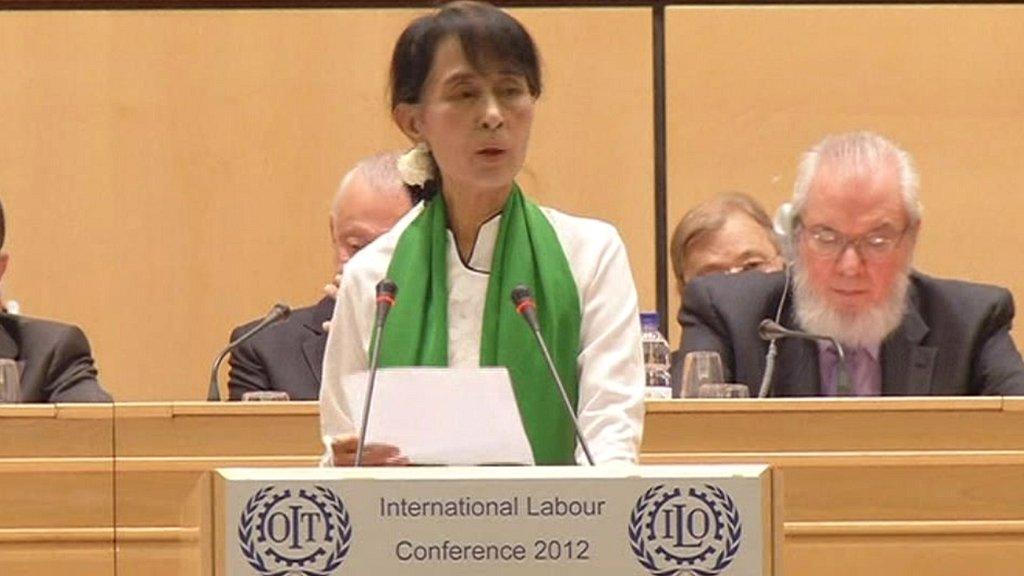
- Published15 June 2012

- Published14 June 2012
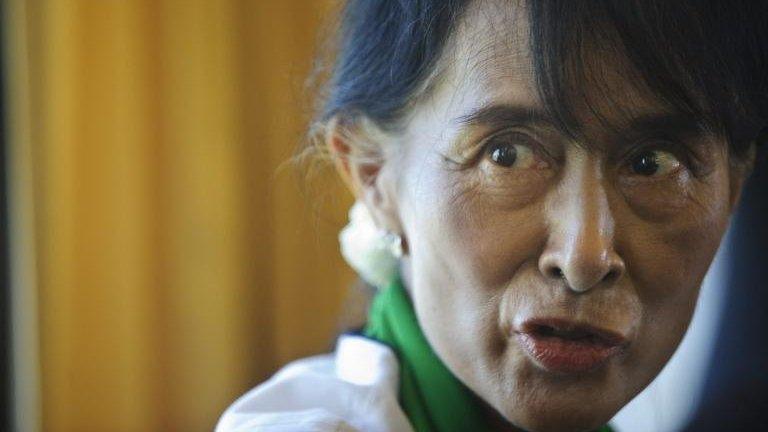
- Published6 December 2021
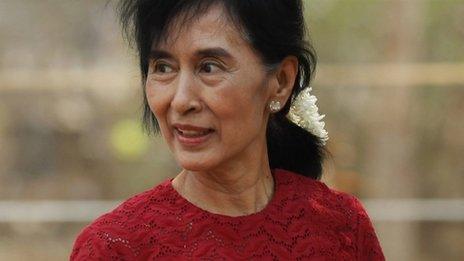
- Published8 July 2015
